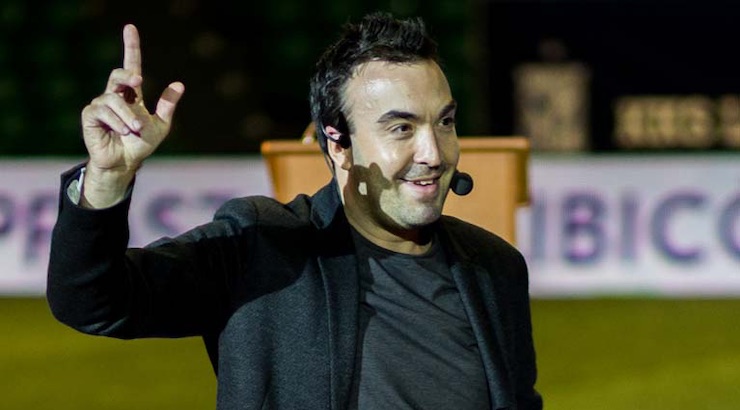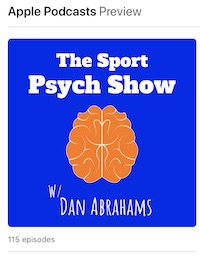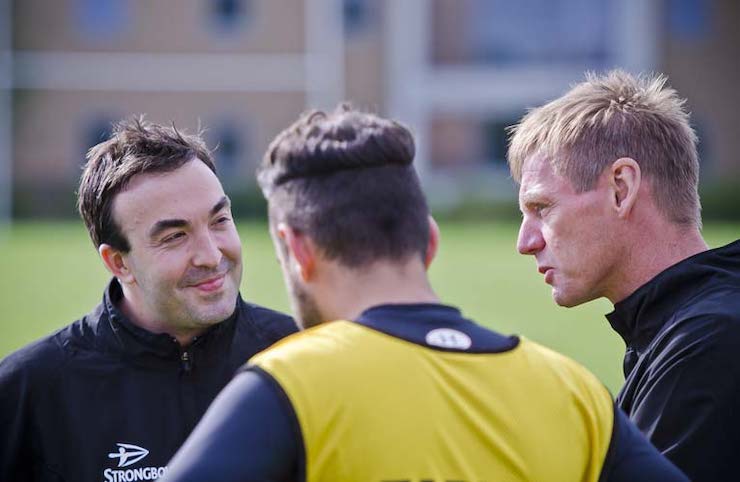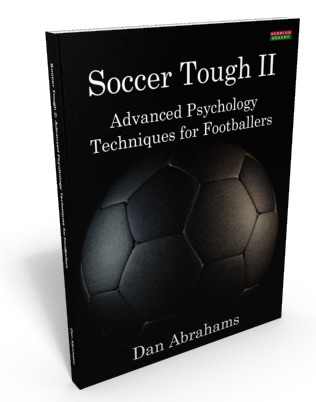D
Dan Abrahams
Guest
Dan Abrahams On It’s Not About The GRIND
Want to get ahead and really help your soccer career reach the next level? Read the Dan Abrahams column on SoccerToday. Dan Abrahams is a global sport psychologist who helps professional soccer players, teams, coaches, and organizations on both sides of the Atlantic. Based in England, Dan Abrahams works with players in the English Premier League (EPL) as well as the Major League Soccer (MLS). Crystal Palace, QPR, Fulham, West Ham United and Sporting Kansas City are just a few of the clubs with players who have benefited from Abrahams’ advice. Abrahams is also an author specializing in soccer.
Grind is not Sexy. According to Dan Abrahams, the word ‘Grind’ might sound cool but it is far from inspiring the excellence a soccer player needs for success.
The Word Grind Should Never Touch Sport
We live in a sporting world where we use words like ‘grind’. Where we celebrate hard work. Where we insist that the tripartite of attitude, effort, and energy will lead to success.

Dan Abrahams
Our recipe is simple – put the work in, and you’ll receive the glory.
I understand. I respect this formula. Sweat and dust and blood feel like the tangible qualities needed for success in soccer at High School and College level, and in the pro ranks.
And words like ‘grind’ sound cool. I don’t think a day goes by where I don’t skip through my Twitter timeline to find a GIF, poster, or short video that displays the word ‘grind’ headlining over the top of pictures and movie shots of soccer stars strutting their stuff.
“You can be him or her if you grind!”
That sounds cool, right? Less cool are these words: the direction of attention, variability, interleaving, focused repetition, self-talk, embodiment, spacing, desirable difficulties, process-oriented, representative, mental state, high challenge with high support, rest, and recuperation – physically and mentally.

Dan Abrahams
Distinctly uncool! And yet, having had the honor of working with some of the best players in world soccer (as well as in other sports) I’d respectfully say that these words, at least when combined, add up to be the strongest mediators of success and failure in just about every sport.
Grind at 4 AM. Grind when you don’t want to. Grind when you’re tired. Grind out another set. Grind with no days off. Grind morning, noon, and night! Grind, grind, grind! Sure, let’s just increase that soccer dropout rate shall we?
In the dictionary, grind (as a noun) means ‘hard, dull work’. Erm! No thanks!
The word Grind should never touch sport. Should never be adjoined to the word ‘sport’ or linked to the activity of sport.

Do ambitious young sports competitors have to put in time developing their game to give themselves a chance to realize their potential? Absolutely! In fact, recently on my podcast, The Sport Psych Show, I spoke with one of the world’s leading experts on sports performance, Professor Mark Williams. He talked to me about the importance of accumulating practice hours from a young age (early engagement … not the ‘10,000 rule’) and referenced research that has demonstrated this importance within sporting development.
So no one doubts the impact practice and playing time has, you can listen to episode #107 with Mark Williams on How Athletes Are Made here: The Sport Psych Show with Dan Abrahams.
But, (and it’s a big ‘but’), research evidence suggests that it’s what players (aided by coaches) do during their practice time that matters. Behavior during practice counts.
You can set them stretch tasks that encourage their anticipatory skills. You can guide them through rules that empower them to become more autonomous with their decision making.
Read: DAN ABRAHAMS: SOCCER PLAYERS – RAISING THE BAR
Players can grind, or you can interleave and space your activities to make them challenging and fun. Rather than doing a passing activity for 10 minutes and then a small-sided game for a further 10 minutes, why not interleave and have them execute a passing activity for 5 minutes, then a small-sided game for 5 minutes, then back to the passing activity.

Dan Abrahams – Sport Psychologist. “It is about helping people perform.”
This brand of interleaving and spacing has been shown to aid learning – a form of desirable difficulty that builds pathways in the brain related to technical development — it’s called neurogenesis.

Perhaps I can help there? Maybe my technique of Game Face or Squashing ANTs might be a fun way for players to learn to stay ‘on-task’ with confidence? Either way, I can assure you the ‘grind’ has nothing on mental skills – not even close!
There are so many creative processes you can introduce players to in your sessions that help them to engage and to pay attention to the things that can help them grow – that can help them be better learners and performers.
But grind? No, never grind. Never, ever the grind!
Read: DAN ABRAHAMS ON “EVERY WORD” A COACH SAYS HAS IMPACT
For more on Dan Abrahams, visit his website and read his other articles on SoccerToday.
The post WHY THE WORD GRIND SHOULD NOT BE IN SPORT appeared first on SoccerToday.
Continue reading...
SoccerToday News from Diane Scavuzzo
Want to get ahead and really help your soccer career reach the next level? Read the Dan Abrahams column on SoccerToday. Dan Abrahams is a global sport psychologist who helps professional soccer players, teams, coaches, and organizations on both sides of the Atlantic. Based in England, Dan Abrahams works with players in the English Premier League (EPL) as well as the Major League Soccer (MLS). Crystal Palace, QPR, Fulham, West Ham United and Sporting Kansas City are just a few of the clubs with players who have benefited from Abrahams’ advice. Abrahams is also an author specializing in soccer.
Grind is not Sexy. According to Dan Abrahams, the word ‘Grind’ might sound cool but it is far from inspiring the excellence a soccer player needs for success.
The Word Grind Should Never Touch Sport
We live in a sporting world where we use words like ‘grind’. Where we celebrate hard work. Where we insist that the tripartite of attitude, effort, and energy will lead to success.

Dan Abrahams
Our recipe is simple – put the work in, and you’ll receive the glory.
I understand. I respect this formula. Sweat and dust and blood feel like the tangible qualities needed for success in soccer at High School and College level, and in the pro ranks.
And words like ‘grind’ sound cool. I don’t think a day goes by where I don’t skip through my Twitter timeline to find a GIF, poster, or short video that displays the word ‘grind’ headlining over the top of pictures and movie shots of soccer stars strutting their stuff.
“You can be him or her if you grind!”
That sounds cool, right? Less cool are these words: the direction of attention, variability, interleaving, focused repetition, self-talk, embodiment, spacing, desirable difficulties, process-oriented, representative, mental state, high challenge with high support, rest, and recuperation – physically and mentally.

Dan Abrahams
Distinctly uncool! And yet, having had the honor of working with some of the best players in world soccer (as well as in other sports) I’d respectfully say that these words, at least when combined, add up to be the strongest mediators of success and failure in just about every sport.
The grind – well, I’d argue that grinding can actually make players worse!
Grind at 4 AM. Grind when you don’t want to. Grind when you’re tired. Grind out another set. Grind with no days off. Grind morning, noon, and night! Grind, grind, grind! Sure, let’s just increase that soccer dropout rate shall we?
In the dictionary, grind (as a noun) means ‘hard, dull work’. Erm! No thanks!
The word grind should never come near sport.
The word Grind should never touch sport. Should never be adjoined to the word ‘sport’ or linked to the activity of sport.

Do ambitious young sports competitors have to put in time developing their game to give themselves a chance to realize their potential? Absolutely! In fact, recently on my podcast, The Sport Psych Show, I spoke with one of the world’s leading experts on sports performance, Professor Mark Williams. He talked to me about the importance of accumulating practice hours from a young age (early engagement … not the ‘10,000 rule’) and referenced research that has demonstrated this importance within sporting development.
So no one doubts the impact practice and playing time has, you can listen to episode #107 with Mark Williams on How Athletes Are Made here: The Sport Psych Show with Dan Abrahams.
But, (and it’s a big ‘but’), research evidence suggests that it’s what players (aided by coaches) do during their practice time that matters. Behavior during practice counts.
You can have players grind, or they can help them engage in a deliberate, intentional form of practice.
You can set them stretch tasks that encourage their anticipatory skills. You can guide them through rules that empower them to become more autonomous with their decision making.
Read: DAN ABRAHAMS: SOCCER PLAYERS – RAISING THE BAR
Players can grind, or you can interleave and space your activities to make them challenging and fun. Rather than doing a passing activity for 10 minutes and then a small-sided game for a further 10 minutes, why not interleave and have them execute a passing activity for 5 minutes, then a small-sided game for 5 minutes, then back to the passing activity.

Dan Abrahams – Sport Psychologist. “It is about helping people perform.”
This brand of interleaving and spacing has been shown to aid learning – a form of desirable difficulty that builds pathways in the brain related to technical development — it’s called neurogenesis.
You can have players grind or teach them how to become mentally skillful.

Perhaps I can help there? Maybe my technique of Game Face or Squashing ANTs might be a fun way for players to learn to stay ‘on-task’ with confidence? Either way, I can assure you the ‘grind’ has nothing on mental skills – not even close!
There are so many creative processes you can introduce players to in your sessions that help them to engage and to pay attention to the things that can help them grow – that can help them be better learners and performers.
But grind? No, never grind. Never, ever the grind!
Read: DAN ABRAHAMS ON “EVERY WORD” A COACH SAYS HAS IMPACT
For more on Dan Abrahams, visit his website and read his other articles on SoccerToday.
The post WHY THE WORD GRIND SHOULD NOT BE IN SPORT appeared first on SoccerToday.
Continue reading...
SoccerToday News from Diane Scavuzzo
